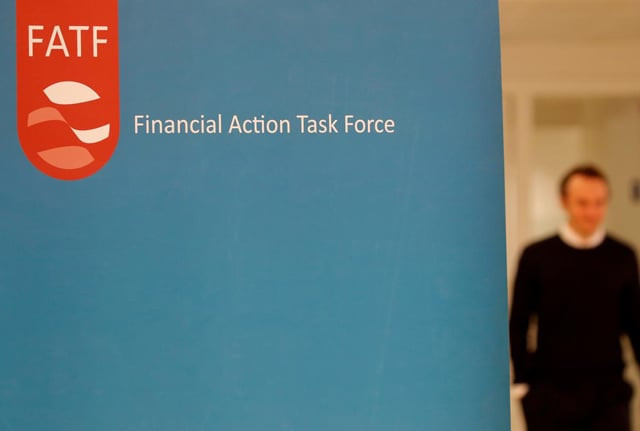Govt to register all privately-run waqf properties
The move aims to increase transparency, comply with FATF standards

The Sindh government, under the newly introduced Sindh Waqf Properties Act, 2020, has started registration of various privately-managed waqf properties in the province. The registration process is said to have been initiated in a bid to satisfy requirements of the Financial Action Task Force (FATF)-an international money laundering and terrorist financing watchdog agency.
According to the said law, the provincial government will take steps to ensure transparency in financial affairs of privately-run waqf properties, including shrines, mosques and religious seminaries being operated via trusts throughout Sindh.
In doing so, a sub-section of section 22 of the edict dictates that private waqf administrations are bound to follow the government’s instructions, in order to prevent any instances fund concealment. “The lease holder at the time of execution of agreement shall provide an affidavit to the effect that the property allotted to him and income therefrom shall not be used for any illegal purposes, including but not limited to money laundering or terrorist financing. The lease holder shall annually submit verified bank account statement to the Chief Administrator (of Auqaf Department Sindh), showing details of credited and debited amount,” stated sub-section three of the Sindh Waqf Properties Act, 2020.
The aforementioned law defines waqf properties as those permanently dedicated for any purpose recognised by Islam, such as religious, pious or charitable. These include properties dedicated for mosques, Takias, Khankahs and Darghas, in addition to those dedicated for relief of poor and orphans, as well as properties allotted in exchange of waqf properties left in India.
It is pertinent to mention here that the Auqaf Department keeps administrative control of over 180 waqf properties across the province. These include Dargah Hazrat Abdullah Shah Ghazi in Karachi, Dargah Shah Abdul Latif Bhittai in district Matiari, Dargah and Hazrat Lal Shahbaz Qalandar in Sehwan among others.
Speaking on the matter, Sindh Auqaf Department Secretary Akhtar Hussain Bugti, said there are several properties which fall under the department’s jurisdiction, except those run privately. “But the government wants to ensure transparency across the board, hence the new law,” he told.
According to the secretary, several waqf properties are also registered with the Sindh Board of Revenue, for which board officials have been asked to share all relevant information with the Auqaf Department. “Following which, the department will register all privately-run waqf properties, including trusts, under the new law,” Bugti added.
However, where the government’s heart appears to be in the right place with the new law, the Auqaf Department is yet to win the trust of several privately-managed waqf properties, in the regard. Management of these nay-saying properties claim that the department needs to make its own affairs more transparent, before setting eyes on privately-run institutions. In their opinion, the traditional way of running affairs of waqf properties is more transparent than whatever’s currently being asserted by the government.
“Everybody knows how transparent affairs of Auqaf Department are,” sardonically remarked Syed Altaf Hussain Shirazi, who looks after the management of Dargah Shah Murad Shah Shirazi, in District Thatta. “I am not aware of any registration process, but this Daragh is over 700 years old and being run honestly, like all places of faith. I don’t think the registration would be suitable,” he told The Express Tribune.
Speaking further, Shirazi said although federal and the provincial governments have introduced various laws pertaining to waqf properties in the past, this is for the first time that any mention of money laundering and terror financing has been brought up in the regard.
Prior to this there was Sindh Waqf Properties Ordinance 1979. The law contained directives against delivery of sermons prejudicial to the sovereignty of Pakistan or those calculated to arouse feelings of hatred or disaffection amongst various religious sects or groups. This law also contained warning against party politics through sermons. Before that, there was the Auqaf (Federal Control) Act, 1976. It also prohibited delivery of sermons containing feelings of hatred against various religious sects or groups in the country.
Initially however, waqf properties were looked after through the West Pakistan Waqf Properties Administration Rules, 1960. It was the only law that had allowed collective administration of mosques and shrines having representation of local community in management. This law had proposed appointment of religious committees to run affairs of shrines and mosques. “However, it’s rather uncanny of this new to be addressing financial matters of waqf properties. So has never been the case before” asserted Shirazi.
Published in The Express Tribune, January 12th, 2021.



















COMMENTS
Comments are moderated and generally will be posted if they are on-topic and not abusive.
For more information, please see our Comments FAQ